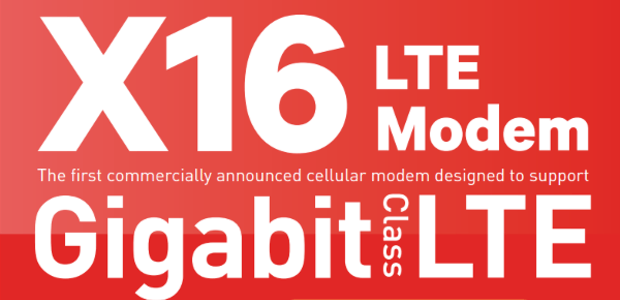advertisement
Ericsson and Qualcomm Technologies demonstrate Gigabit Class LTE in Africa
Ericsson and Qualcomm Technologies Inc., a subsidiary of Qualcomm Incorporated, are the first to announce a successful demonstration of over-the-air…

Ericsson and Qualcomm Technologies Inc., a subsidiary of Qualcomm Incorporated, are the first to announce a successful demonstration of over-the-air Gigabit Class LTE in Africa with the use of licensed spectrum.
Peak data speeds over 900Mbps were recorded using Ericsson Radio Access Network equipment and a Qualcomm Snapdragon X16 LTE modem mobile test device.
Gigabit Class LTE supports data throughput of over 900Mbps by utilizing three-carrier aggregation with 256 quadrature amplitude modulation (QAM), and by applying 4×4 multiple-input and multiple-output (MIMO) across 40MHz of spectrum.
advertisement
To put that speed in perspective, Gigabit Class LTE means up to one billion bits of information delivered to a mobile device in a mere second. In technical terms, that’s LTE Category 16.
The demonstration continues the long-term cooperation between Ericsson and Qualcomm Technologies to support African operators in bringing advanced communication technologies and enhanced user experience to their subscribers.
James Munn, Vice President Business Development, Qualcomm International, Inc., South African Branch Office, says: “This achievement of Gigabit Class LTE download speeds with Qualcomm Technologies and Ericsson is an important milestone on the road to Africa’s first 5G networks.
advertisement
“This continent’s first announced demonstration of this technology using licensed spectrum makes use of the Snapdragon X16 LTE modem, which is expected in multiple devices during the course of next year, and underlines Qualcomm Technologies commitment to African ICT development.”
While smartphone ownership continues to increase exponentially with consumers still restricted by a lack of fixed broadband availability, mobile broadband is the most common way to connect to the internet in Africa.
For example, 83 percent of Nigerian mobile phone subscribers rely solely on this channel. Research indicates that LTE networks will serve 50 percent of the population in 2021 (source: Ericsson Mobility Report Sub-Saharan Africa Nov. 2015).
advertisement
Ericsson Radio System’s multi-standard platform enables African operators to cost-effectively leverage the reach, maturity and increasing affordability of today’s 4G technology, while laying the foundation for their LTE Advanced and 5G evolution.
The Snapdragon X16 LTE modem is the first processor from Qualcomm Technologies to support LTE Advanced Pro, the next generation of LTE. It supports 4x carrier aggregation, 4×4 MIMO, 256 QAM, and Licensed Assisted Access (LAA) technologies and has the potential to expand the number of operators that can offer Gigabit Class LTE service to their customers.
Jean-Claude Geha, Head of Region sub-Saharan Africa, Ericsson, says: “We strongly believe that we can contribute and support African operators to develop a sustainable African telecommunications industry where mobile communication dominates. We are proud to continue with our longstanding relationship with, Qualcomm Technologies, to demonstrate the Ericsson platform leading to future 5G deployments in Africa.”